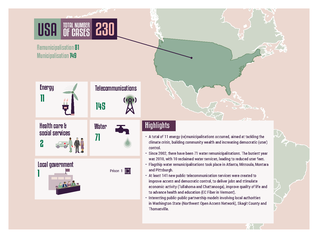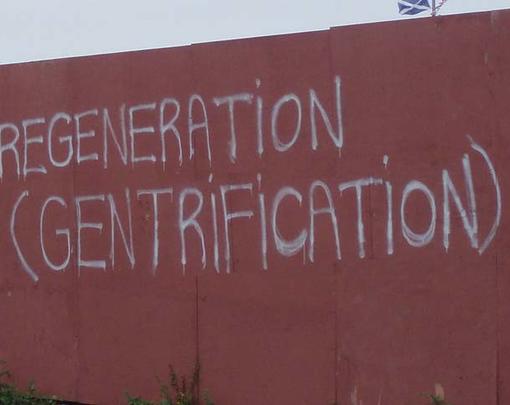Resistance to privatization has turned into a powerful force for change: (re)municipalization. The term (re)municipalization refers to the reclaiming of public ownership of services as well as the creation of new public services.
In recent years, the Transnational Institute and partner organizations have identified more than 1,400 successful (re)municipalization cases involving more than 2,400 cities in 58 countries around the world. But this publication is about more than just numbers. It shows that public services are more important than ever in the face of the climate catastrophe, mounting inequalities, and growing political unrest.
The COVID-19 crisis too has made painfully clear the disastrous effects of austerity, Social Security cuts, and privatized health care systems, but it has also demonstrated that public services and the people who operate them are truly the foundation of healthy and resilient societies, though years of privatization and austerity have choked off democratic control and sufficient funding to this foundation. As privatization fails, a growing international movement is choosing (re)municipalization as a key tool for redefining public ownership for the 21st century.
The stories in the book The Future is Public take us to new countries and introduce us to new sectors to illustrate the diversity of (re)municipalization efforts. Each (re)municipalization has its own specific challenges: from waste management in Egypt to the new public pharmacies in Chile, and to the many remote US municipalities that have delivered jobs and improved quality of life by developing broadband internet (a chapter co-written by Next System Project research director Thomas M. Hanna with Christopher Mitchell).
Together, civil society organizations, trade unions, and local authorities are shaping a new template for how to expand democratic public ownership to all levels of society and opening up new routes to community-led and climate-conscious public services.
Read and download The Future is Public






